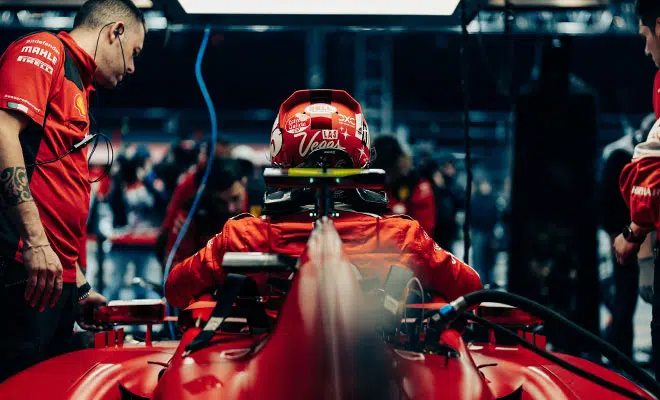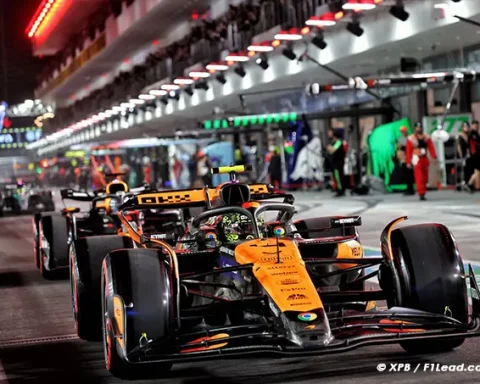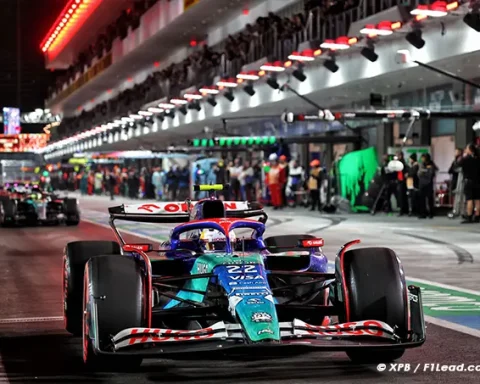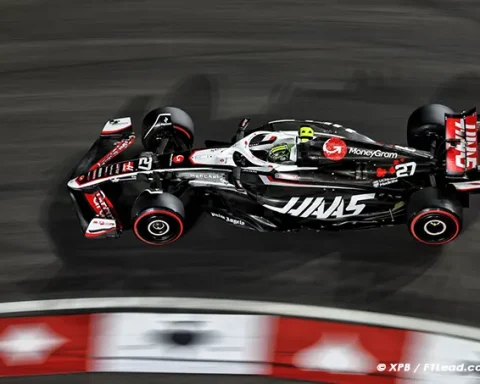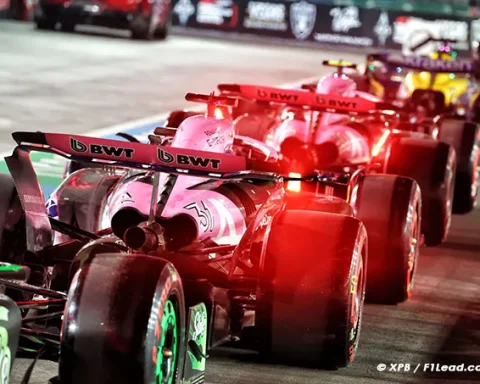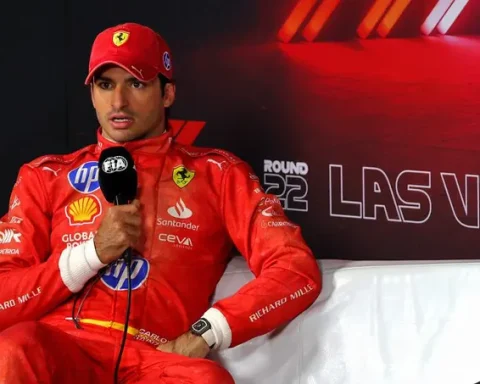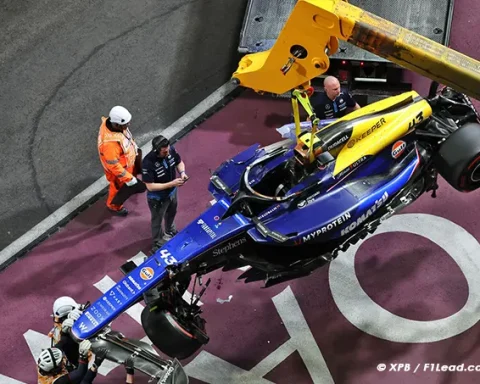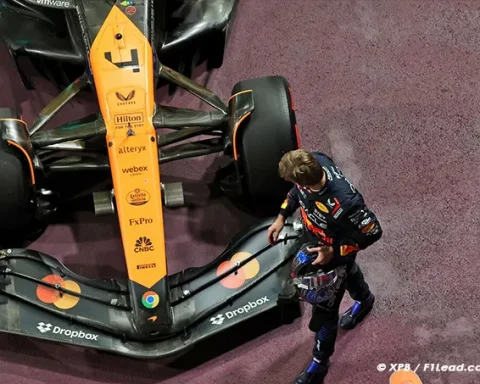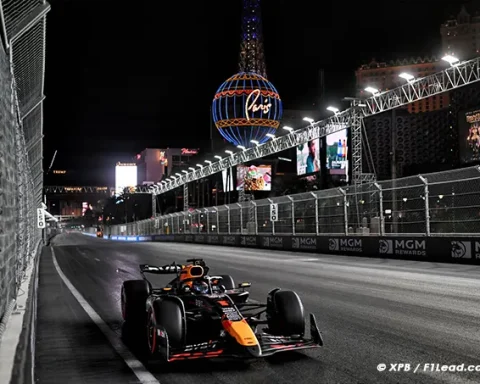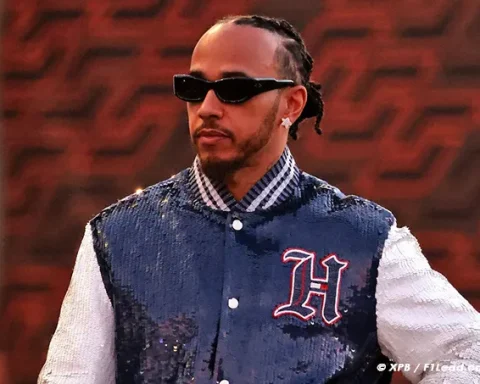In a crucial year for Ferrari, the team faces a pivotal moment, grappling with past struggles, leadership changes, and the pressing need for redemption in the fiercely competitive Formula 1 arena. The question looms: Will Scuderia Ferrari F1 in 2024, with the new car, overcome the challenges and fierce competition, or are we poised to witness another season of disappointment?
In fundamental terms, Ferrari has taken a step back in Formula 1. They haven’t clinched as many races in 2023 as they did in 2022, scored fewer points, and dropped to third in the constructors’ championship.
These indicators suggest Ferrari shot itself in the foot with its latest team overhaul. This aligns with the dominant narrative from last winter, given this disappointing season followed what many perceived as just the latest futile change in team leadership at Maranello.
It was never meant to detract from new team director Fred Vasseur, a respected and beloved member of the F1 paddock.
However, replacing Mattia Binotto with the former head of Sauber seemed like Ferrari was once again failing to address the root problem.
Fears arose that Vasseur would be undermined – the next casualty awaiting unnecessary interference from Ferrari’s ultimate hierarchy. Rumors even surfaced that CEO Benedetto Vigna desired a more hands-on role. He’s someone who said finishing second is merely the first loser, and mere months into 2023, whispers in Italy suggested he was indeed clashing with Vasseur.
Yet a year on, these concerns and speculations appear unfounded. Even if the numbers are worse, Vasseur’s Ferrari is on a better trajectory.
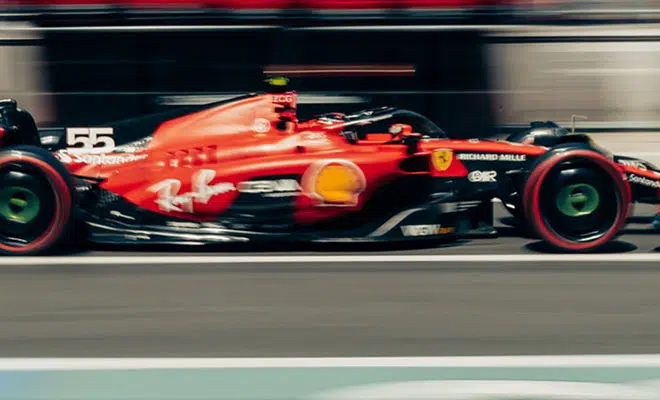
Leclerc’s Take: Ferrari’s Dual Season Reality
At Abu Dhabi last year, Charles Leclerc perfectly encapsulated the duality of Ferrari’s season on paper and its reality.
“To be honest, it’s been a disappointing season,” Leclerc stated.
“We came in hoping to contend for the championship, and right after the first race, we realized how challenging it would be compared to Red Bull, who had taken a huge step forward, especially in race pace.
“We didn’t make the same stride. So from that point, it was a bit disappointing.
“On the other hand, if you just look at the season – forget the last one – I think we’ve made a lot of progress, which is positive and gives me confidence for the future.”
Statistics aren’t always the best measure of a team’s progress, but having discussed the negative comparison between 2022 and 2023, what about a counterpoint?
We can’t blame Vasseur for the first part of the year, given the car was designed before his tenure, and he inherited a team that seemed to lack operational and technical confidence.
He even joked in December: “Everyone told me: ‘You’ll see at Ferrari, you’ll start the season well and then it’ll go downhill’ – and believe me, after Jeddah or Melbourne, I said what the hell, if this was the good part of the season, we’re in big trouble!”
A single season isn’t enough to transform a team, but Vasseur highlighted the change over the year. The Ferrari he began molding emerged as a far better proposition in the latter half of 2023.
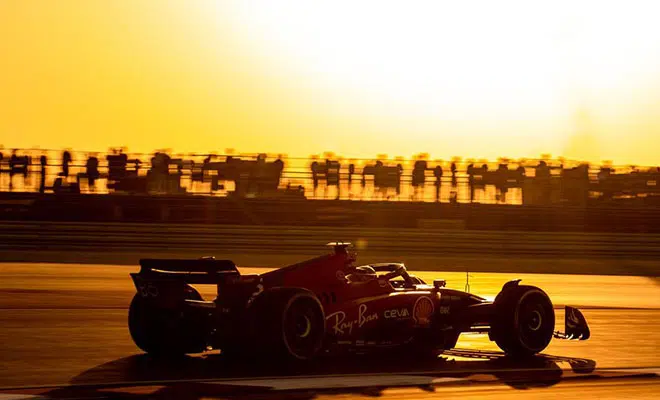
Ferrari’s Resurgence: Vasseur’s Mid-Season Turnaround
Ferrari scored an average of 20.1 points per grand prix in the team’s post-summer 10 races, compared to 15.9 points per race in the first half of the season. Two poles in the first 12 races turned into five in the last 10. Three podiums became six. Ferrari even managed to clinch a victory – the only team besides Red Bull to do so.
“The lesson is that we knew how to react,” Vasseur declared.
“The external perception of Ferrari is probably incorrect.
“When I was outside, I always thought the team would overreact to every event. But the team was very, very calm.
“We were aware of the situation and the car’s weaknesses, but we had a good attitude to face it, taking it step by step.”
After initial uncertainty about whether Vasseur would be able to lead the team as he wished and if the necessary changes at Ferrari would follow, the second half of 2023 offers some tentative evidence in his and the team’s favor.
This is a valuable sign considering that in the early months of the season, it was hard to believe much was changing.
Vasseur had initiated changes from the start, with some strategic personnel shifts, and news broke in the early months that some key figures wanted to leave (Davide Sanchez joined McLaren, while Vasseur’s second-in-command, Laurent Mekies, would become the new director of AlphaTauri). But then, it seemed to be in a period of stasis, at least externally.
That’s classic Fred. He’s not one for much public discourse. He prioritizes actions and preaches patience.
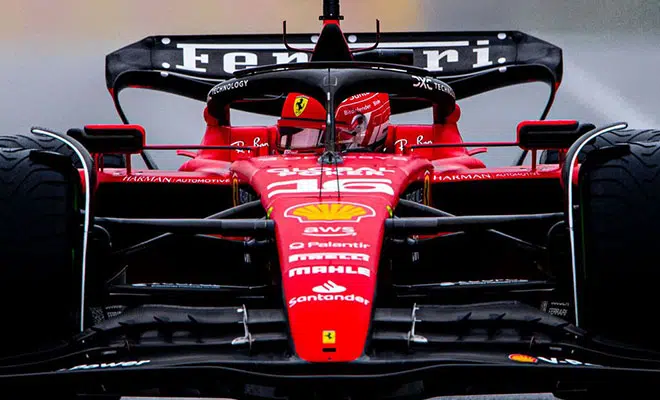
Ferrari’s End-of-Year Resilience
He always emphasized that one couldn’t expect him to come in and immediately shake things up, and improvements couldn’t be expected to materialize just two or three months later.
But by the year’s end, Ferrari seemed a calmer, more robust team. It made fewer strategic and operational errors and had fewer reliability issues. From the outside, it looked more convincing in making the most of what it had.
“And that’s exactly how it is on the inside too,” Carlos Sainz said at the end of the season.
“We recognize the package we have, we understand it, and we’ve just set it on the right track and are trying to maximize it every weekend. We’re doing a much better job in this area.”
Vasseur’s Vision: Guiding Ferrari to Precision and Progress
Ferrari also delivered something Vasseur pushed relentlessly from the beginning when, to the surprise of many, he continued to insist that Ferrari was underperforming with a car that it could make the most of without destroying the concept mid-season.
Admittedly, this was facilitated by healthy development, but it occurred in the latter half of the year.
“I remain convinced that it’s more about track operations where we made a stride in the last third of the season rather than car development,” Vasseur believes.
“We developed the car a lot in the first part of the season, and maybe it took time to handle it correctly. But I’m convinced that in the latter part of the season, we were much more aggressive, and it’s a matter of tenths.
“When I say this, it’s being more aggressive about everything. You gain two hundredths here, two hundredths there, and at the end, it’s a tenth. On average over the season, the gap between us and the preceding car was three-hundredths of a second on the grid.
“That means if you make a tenth, it’s two or three positions on the average grid.
“It’s about details, and we paid much more attention to details towards the end than at the beginning.”
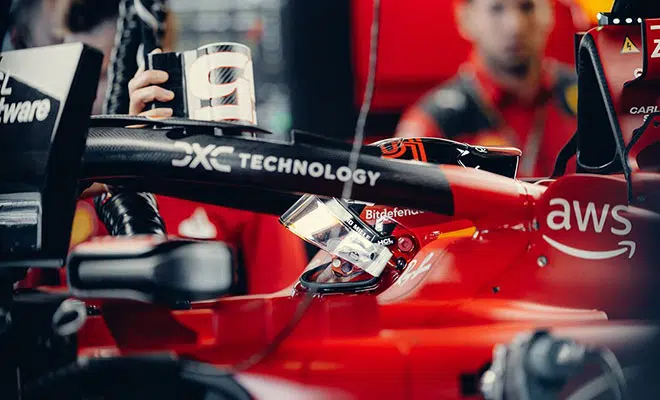
Ferrari Enhances Leclerc’s Position: New Deal Looms
Ferrari also specifically improved things for Leclerc – Ferrari’s star asset who is very fond of Vasseur and whose strained relationship with Binotto by the end of 2022 now seems a distant memory. Leclerc appears on the verge of signing a new lucrative long-term contract with Ferrari.
Finding faith in a season that superficially looks like a step back is a major victory.
Vasseur was playing, and still is playing, a long game at Ferrari. Inevitably, from the beginning, the focus was on getting the team to buy into his direction and believe in the organization’s potential.
Vasseur’s Balance: Steering Ferrari Past the Blame Game
That’s easier said than done – just look at how Binotto speaks of culture. He seemed to make a genuine effort to avoid blaming individuals in the way Ferrari was previously guilty of, but he didn’t manage to foster enough accountability. Previous Ferraris pointed fingers at individuals. Binotto’s Ferrari avoided any kind of blame, which meant problems remained unidentified and unresolved. Vasseur’s Ferrari seems to strike a healthier balance between empowering the workforce and eliminating errors.
You May Like Also – FRED VASSEUR: DRIVING FERRARI TO SUCCESS IN F1
Steering Ferrari Towards Agile Success
“The first thing is to understand the team, and that takes time and there’s no secret,” Vasseur stated.
“You have a group of people who have been working together for years and when you enter this group, you need to understand how the group operates before taking any action or decision.
“My job was more to support them in that we need to be aggressive, that we need to take risks, that we need to be ambitious and not be afraid of any incident or something like that.
“We’ve made a step in this direction. You always need to be on the edge, and it’s in this culture where Red Bull is very successful for me.
“They’re used to being on the edge, being aggressive on all fronts, and we need to take that direction.”
Perhaps the best indicator of Vasseur’s internal impact is that Ferrari Chairman John Elkann has vocally expressed his satisfaction with what he’s seen despite the lack of results.
In a rare interview with the BBC towards the end of 2023, Elkann stated he “could not be happier” with Ferrari under Vasseur, describing it as a “much tighter, much closer” team this season.
“Accountability is really one of the main determinants of what our competitors have managed to achieve,” Elkann said.
“And also of agility, despite larger organizations.
“Fred had these attributes, having worked in motorsport all his professional life and having seen a lot of success in different categories, but also in F1 after leading a smaller team.
“On one hand, he instills a culture of accountability, but on the other, he possesses experience within smaller, more efficient, and agile organizations, which we clearly lacked compared to our stronger competitors.”
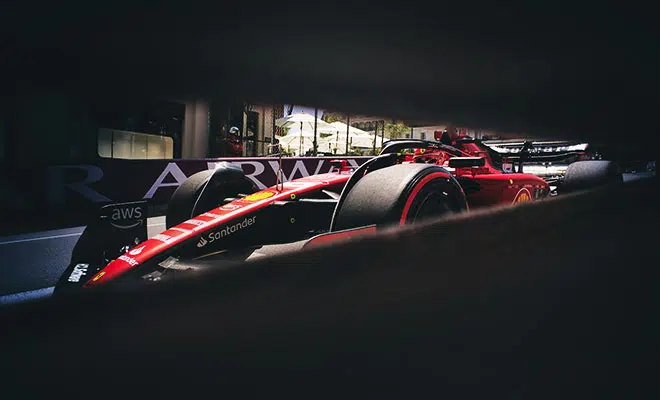
Elkann’s Insight: Ferrari’s Path to Clear Accountability
Elkann also touched on a potentially healthier way for Ferrari to handle things at the moment. He agreed that the team’s last true period of success, led by the Jean Todt/Ross Brawn/Michael Schumacher trio with a more distant president, Luca di Montezemolo, was the result of an “organization that worked very clearly.” Elkann once again linked this to “clear accountability” – another hint at what he believes has been lacking in Ferrari in recent years and what Vasseur is addressing.
Embracing Accountability for Future Wins
“We haven’t had that culture since Jean Todt and then Stefano Domenicali were at the helm,” csaid.
“It had left us.
“It’s not about blaming, it’s about being accountable. And that was a major cultural difference we had.”
You May Like Also – FERRARI TO KEEP UPDATING FACILITIES
A Solid Foundation for 2024
The jury is still out on how much and in what ways Ferrari has changed and whether it has changed in the long-term direction needed. But the undeniable progress made in 2023, in areas Ferrari hasn’t impressed in for a long time like car development and team composure, suggests that Vasseur was once again drawing more from this organization.
It’s a solid foundation for 2024. Culture doesn’t change overnight, but Vasseur continues to talk about it as a group of people who all believe they are performance differentiators. He wouldn’t emphasize this point if he felt it was the same as what he inherited at the start of the year.
“Performance comes from everywhere in the company, from our ability to produce parts faster, from having better reliability,” Vasseur said.
“We conceded too many points this season for different reasons, for reliability, for the disqualification in Austin, for impeding in qualifying.
“That’s clearly where we need to work. And we need to improve aerodynamics, the engine, and every topic.
“The most important thing is that the team’s 1,600 members are convinced that they all contribute to performance, and they all strive to push the boundaries a little.”
“Even if it’s just by a thousandth of a second, if we have enough of them, it’s a big step forward.”
Maximizing the potential of individuals is something Vasseur has often been praised for in his previous roles. And perhaps that’s precisely what Ferrari has previously been worst at.
You May Like Also – FERRARI SEEKS COMPENSATION FOR VEGAS DAMAGE
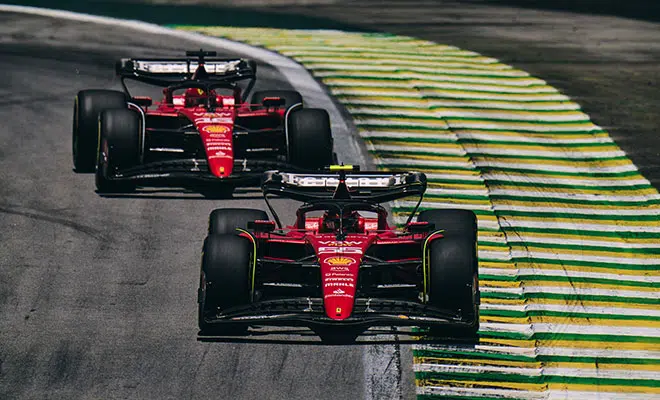
Investing in Talent for Ferrari’s Future
At the same time, Vasseur has recognized the need to invest in more talent. This process began months ago, but it will take time to bear fruit.
“We’ve already changed some people, but I’m not a big fan of communicative names,” Vasseur stated. “I never have been, and I won’t start now.
“But it’s not about one person or even me; it’s about the group. The most important thing is the group of people, and I’m quite proud of the team’s reaction over the season.
“Individual changes always need to be made within an organization, and we’re doing that. We’re recruiting a lot, but you know the system in F1 perfectly, there’s huge inertia because of the contracts in place.
“When you identify a problem, decide to recruit, you have the recruitment process, and then the guy will join 12 months later with a six-month notice, and on top of that, he will work on the next year’s car.
“It means very often you make a decision and the impact is in one year plus two or plus three.”
You May Like Also – VASSEUR SHINES: FERRARI’S YEAR-END DEBRIEF HIGHLIGHT
Ferrari’s Crucial Evolution: Vasseur’s Vision for 2024
Adding new, high-quality staff to a more efficient organization is obviously a goal to strive for. Ferrari has always been weaker than the sum of its parts, and fixing that is the only way to realize its potential.
Perhaps that’s the path Ferrari is finally embarking on. Vasseur’s second season at the helm will be a significant test of that theory.
Ferrari’s recovery in the next phase demands improved results, and a year from now, they won’t be as generously granted the mitigation of the weaker numbers from 2023.
Vasseur’s start at the helm has been steady and quiet. Even if the early months didn’t show it, it has certainly translated into essential changes in personnel and track operations.
Despite discussions about culture and aggression in the pursuit of the elusive title, 2024 will be the year to put Fred’s direction to the test. Project 676, initiated from scratch and commenced earlier than its predecessors, is creating a wave of expectations.
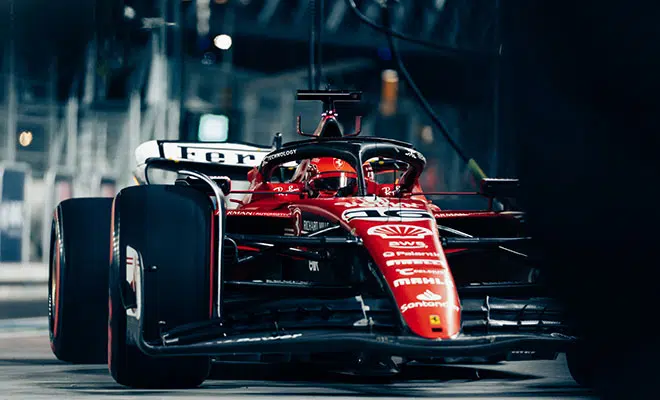
Leclerc, Sainz, Cardile, Binotto: Ferrari’s F1 Evolution
From my perspective, Charles Leclerc and Carlos Sainz form the best pairing on the grid. They comprehend each other and play a vital role in propelling the team to the top.
Even though the team’s official stance aims to maintain harmony within the garage through equal driver status, it’s clear that they have tailored the 24 car around Leclerc. With Charles establishing himself as the faster of the two and earning the designation of ‘the chosen one,’ we will have to observe the future performance of this duo.
Enrico Cardile’s Fate at Ferrari Hinges on 2024 Project
Enrico Cardile faces his year of reckoning. Despite Maranello’s usual purported upbeat noises about the car, this project will determine his future at Scuderia Ferrari (SF). Under his technical leadership, the team has advanced but still struggles to maintain consistent development. The team’s understanding of the vehicle and its trackside relationship has improved, yet whether the car truly stands as a ‘versatile performer’ awaits confirmation.
Mattia Binotto’s idea of a blameless culture was nothing but a culture of no accountability and misguided optimism. One could argue that his dismissal is again the usual revolving door, but someone must surely answer for the debacle that unfolded in 2022.
As a tifoso, I hope the team continues its upward trajectory because we, the tifosi, grow tired of declaring that next year will be our year, which aligns with my customary wish.
Ferrari 2024 car f1 Ferrari 2024 car f1 Ferrari 2024 car f1 f1 Ferrari 2024 car f1 f1 Ferrari 2024 car f1 f1 Ferrari 2024 car f1 f1 Ferrari 2024 car f1
You May Like Also – 2024 DAKAR RALLY ROUTE DETAILS
You May Like Also – Hamilton’s Quest for F1 Redemption Against Red Bull
Stay up-to-date with the latest Formula 1 news by following us on Facebook and Twitter.
